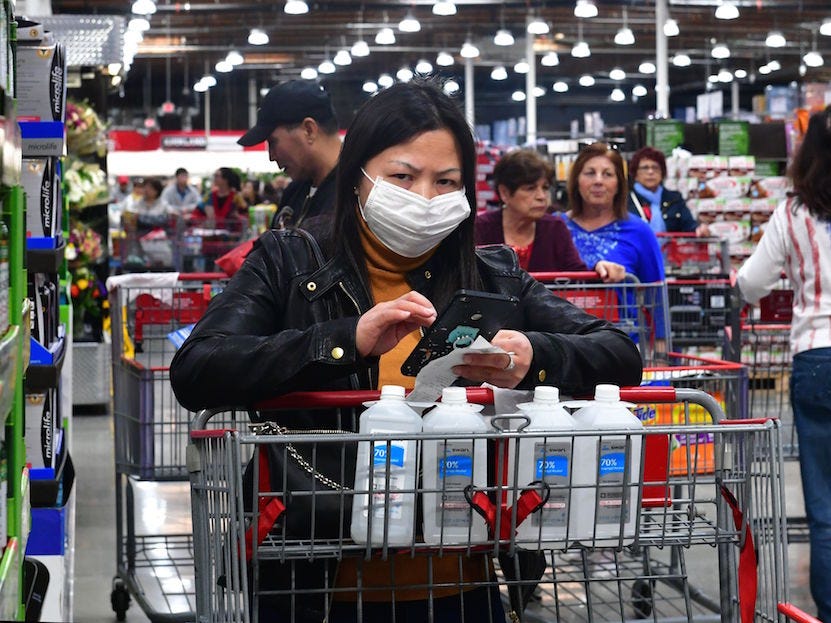Drapers Investigates: Cost of coronavirus to fashion retail

Drapers Investigates: Cost of coronavirus to fashion retail
Drapers’ Covid-19 coronavirus survey sheds light on the number of businesses across the UK and Ireland currently battling to survive amid the devastating outbreak, with more than a third of respondents already reporting staff cutbacks. It found that the industry will require rapid and transparent support from the government for it to be able to bounce back.
Cost of coronavirus to fashion retail
As the coronavirus pandemic grows, so does its impact. Like every industry, fashion has been heavily affected. Events such as Graduate Fashion Week and manufacturing trade show Make It British Live have been postponed indefinitely, while suppliers and manufacturers are grappling with refused shipments and weaker forward orders.
Elsewhere, retailers and department stores have been forced to shut their doors and reduce staff working hours.
Against this backdrop of instability, Drapers conducted a survey of the fashion sector to gather and disseminate information regarding the challenges businesses are facing and to find out what national support they need. The survey was open to fashion-based businesses from across the UK and Ireland, and received 301 responses between late March only.
Respondents described the situation as “heartbreaking” and “devastating”, and many feared their businesses would be wiped out as a result of the epidemic. Immediate and potentially long-term impacts include store closures, “significant” declines in revenue, anxious colleagues, “drastically” reduced footfall, a build-up in deferred payments and debt, cancellation and delay of orders, and job cuts (see the survey methodology below).
“We have gone from implementing a growth strategy this year to creating and implementing a survival strategy,” the founder of one Scotland-based fashion brand said.
More than one-third (37%) of participants revealed their businesses have had to cut back on staff as a result of coronavirus. Of those who said their businesses had not done so yet, 49% said it was being considered.
Even before the government ordered non-essential retailers to close their doors in March, 50% of respondents said the retailer or brand they work for had been forced to close stores, while 52.5% of respondents said opening hours had been reduced. However, 80% said they were still accepting online orders.
With many customers isolating in their homes, companies’ best-performing products were jeans, denim, leggings, loungewear and athleisure.
Of the suppliers, manufacturers and agents who took part, 77% said their business functions were still operating, while 51.5% of those who had not closed their businesses said they had reduced working hours. Many said this was because they still had to work to deadlines: 52% of respondents were still taking orders, and a further 22% were still taking orders on a reduced basis.
However, 59% said they have had to cancel orders, which they claimed would have a “catastrophic” impact on company finances in the short and long-term.
“Although it is a setback with customers returning items and stores now shut, on top of reduced sales, we are trying to remain positive and thinking of other ways we can keep the business going through online platforms,” the managing director of one London-based independent retailer said.
Respondents said they have put measures in place to mitigate the impact. These included bringing payroll and other controllable costs to a bare minimum; reducing supply chains to ensure stock intake is brought in line with reduced sales; discounting; increased cleaning; recruitment freezes; offering unpaid leave; staff allowed to work only contracted hours; driving omnichannel; payment plans with suppliers; applying for business interruption loans; cancelling orders for summer stock; and asking landlords for extended rent payment holidays.
Last week, the government announced business grants to cover 80% of wages of those employees not working as a result of coronavirus, introduced a year-long business rates holiday, and said it would introduce £330bn of government-backed loans and guarantees for UK businesses.
Many respondents said they believed the government has been “outstanding” so far, and is doing as much as it can in such difficult circumstances. However, some said it was too slow in announcing the closure of retail stores and called for it to move faster when reacting to changes, avoid deferring costs, and ensure proposed actions “actually happen”.
“We need more clarity on things, as so much is in the fine print and we need access to cash now, not in the future,” said the managing director of another London-based independent retailer.

fashionabc is a fashion technology platform, comprising a digital directory and various other digital tools and supply chain solutions for the fashion industry ecosystem, that focus on ethical fashion and sustainability. We are building inclusive digital transformation tools for fashion professionals who are willing to take steps towards a more sustainable ethical fashion industry, by adopting AI and DLT blockchain technology.
* building digital profile and IP solutions for fashion businesses
* tackle issues such as provenance and counterfeit in supply chain
* contribute to the construction of a meritocratic ethical fashion industry which is certified and part of the circular economy










